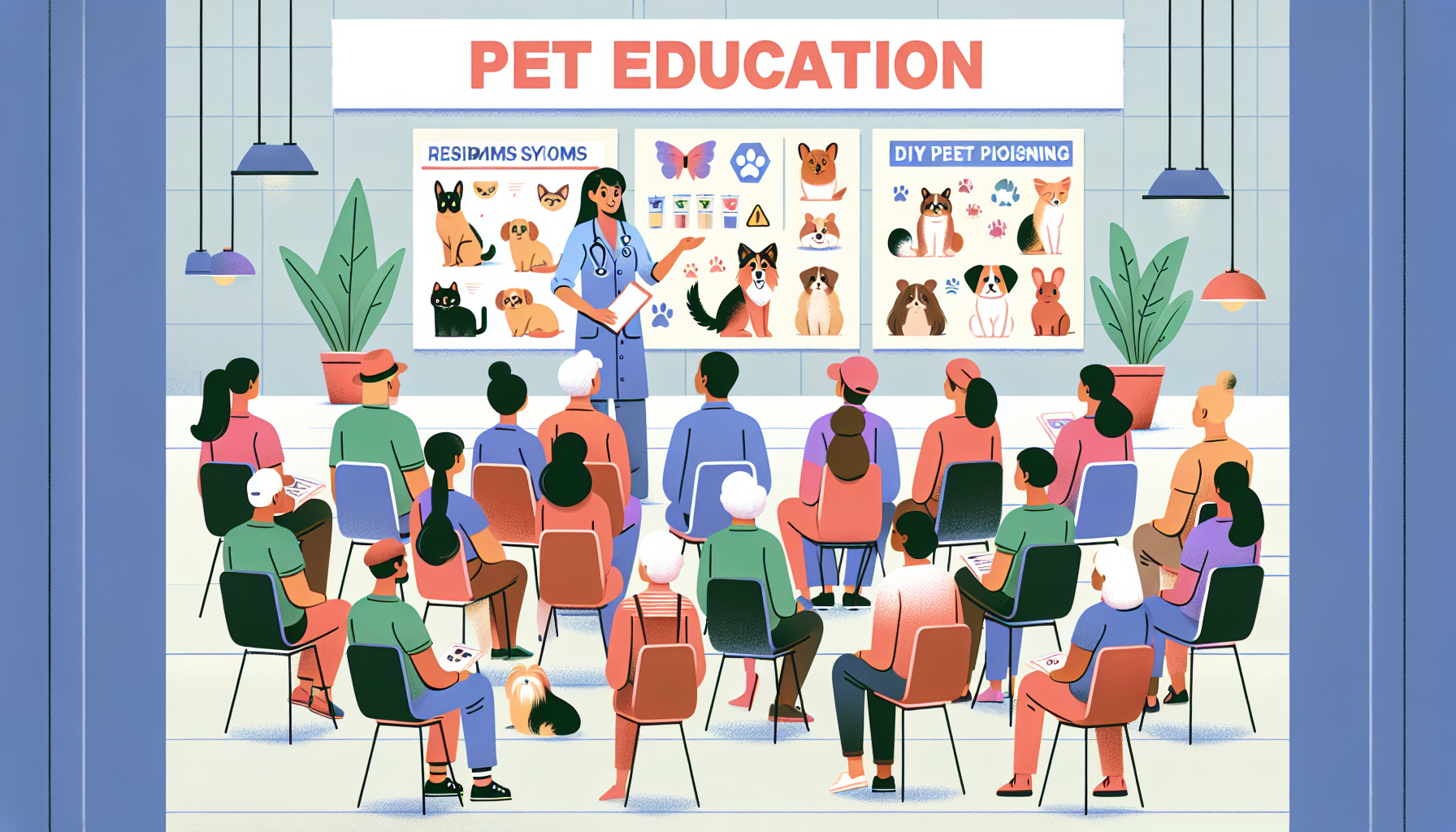Veterinary Emergency Stories: When Human Medicine Turns Lethal for Pets

Human medications consistently rank among the top causes of pet poisonings. The fundamental issue lies in the fact that pets metabolize substances differently than humans. Therefore, drugs that are safe for human consumption can be toxic or even fatal to pets. Common medications like ibuprofen, antidepressants, and certain over-the-counter remedies are often the culprits. For instance, ibuprofen, a staple in many medicine cabinets, can cause severe gastrointestinal and kidney damage in pets, especially when consumed in large quantities.
Real-Life Veterinary Emergencies
Veterinarians frequently encounter emergencies stemming from pets ingesting human medications. Consider the case of a Labrador retriever that consumed ibuprofen pills left on a nightstand. The dog quickly developed symptoms of toxicity such as vomiting and lethargy. Prompt action by the pet owners, who rushed their pet to an emergency clinic, was necessary to avert kidney failure through immediate veterinary intervention. In another instance, a cat ingested a fragment of an antidepressant tablet that had inadvertently fallen to the floor. The cat exhibited tremors and seizures, necessitating swift stabilization by the veterinary team to prevent severe complications. These cases highlight the critical need for awareness, as even minute amounts of medication can have devastating effects on pets.
Recognizing Symptoms of Poisoning
Awareness of poisoning symptoms is crucial for pet owners to prevent fatal outcomes. Symptoms can vary depending on the medication but commonly include vomiting, diarrhea, drooling, tremors, seizures, and changes in behavior. Recognizing these signs and seeking immediate veterinary care can make the difference between recovery and irreversible harm or death. Time is a critical factor in such emergencies, underscoring the importance of vigilance.
Preventive Measures and Safe Practices
Prevention remains the most effective strategy in safeguarding pets from medication-related poisonings. Pet owners should store medications securely, ideally in cabinets or drawers out of pets' reach, and utilize child-proof containers. Additionally, establishing a routine for safe medication handling and educating all household members about the risks can significantly mitigate the chances of accidental ingestion.
Supporting Examples or Evidence
The Animal Poison Control Center has reported that over half of pet poisoning incidents involve human medications. Each year, countless pets suffer, and some succumb to these preventable tragedies. These statistics, coupled with the real-life stories shared by veterinarians, underscore the necessity of increased awareness and responsible pet ownership. By learning from these incidents, pet owners can better protect their beloved companions from similar fates.
The bond we share with our pets compels us to ensure their safety and well-being. Yet, the dangers posed by human medications are often overlooked. Through the lens of real-life veterinary emergencies, this article aims to shed light on these risks and encourage pet owners to adopt preventive measures. Recognizing symptoms of poisoning and seeking swift veterinary care are critical steps in safeguarding our pets. Ultimately, with heightened awareness and proactive action, we can ensure our homes remain safe havens for our furry family members, free from the lethal threat of human medications.
Veterinary Toxicologist
Universities, research institutions, and veterinary pharmaceutical companies
Core Responsibilities
Conduct research to identify toxic substances and their effects on animals.
Develop treatment protocols for animals exposed to toxins.
Collaborate with veterinary clinics to provide expert guidance on poisoning cases.
Required Skills
Extensive knowledge of pharmacology and toxicology.
Ability to analyze complex data and research findings.
Strong communication skills for educating pet owners and veterinary professionals.
Unique Qualifications
A Doctor of Veterinary Medicine (DVM) degree with a specialization in toxicology is often required.
Veterinary Emergency Clinician
Emergency veterinary hospitals and animal clinics
Core Responsibilities
Diagnose and treat animals in emergency situations, often involving toxic ingestions.
Perform emergency surgeries and critical care procedures.
Collaborate with pet owners to provide fast, effective treatment plans.
Required Skills
Proficiency in emergency veterinary medicine and surgery.
Ability to work in high-pressure environments and make quick decisions.
Excellent problem-solving and interpersonal skills.
Unique Qualifications
Board certification in emergency and critical care is highly regarded.
Veterinary Pharmacist
Veterinary hospitals, pharmaceutical companies, and academic institutions
Core Responsibilities
Dispense medications and provide guidance on safe drug use for animals.
Advise veterinarians on drug interactions and side effects.
Develop and manage pharmacovigilance programs to monitor medication safety.
Required Skills
Comprehensive understanding of veterinary pharmacology.
Attention to detail and strong organizational skills.
Effective communication skills for educating veterinary staff and pet owners.
Unique Qualifications
A Doctor of Pharmacy (PharmD) degree with a focus on veterinary pharmacy.
Animal Behavior Specialist
Animal shelters, veterinary clinics, and private consulting firms
Core Responsibilities
Assess and address behavioral issues in pets, including those resulting from toxin exposure.
Develop behavior modification plans to improve pet safety and well-being.
Educate pet owners on preventive care and environmental enrichment.
Required Skills
In-depth knowledge of animal behavior and psychology.
Strong observational and analytical skills.
Ability to communicate effectively with pet owners and veterinary teams.
Unique Qualifications
Certification in animal behavior, such as a Certified Applied Animal Behaviorist (CAAB).
Veterinary Public Health Officer
Government agencies, public health departments, and non-profit organizations
Core Responsibilities
Monitor and manage public health risks associated with animal-related toxins.
Develop policies and educational programs to prevent animal poisonings.
Conduct research on zoonotic diseases and toxicology.
Required Skills
Strong analytical and research skills.
Knowledge of public health principles and regulatory frameworks.
Ability to collaborate with government agencies and community organizations.
Unique Qualifications
A Master’s degree in Public Health (MPH) with a focus on veterinary public health.


